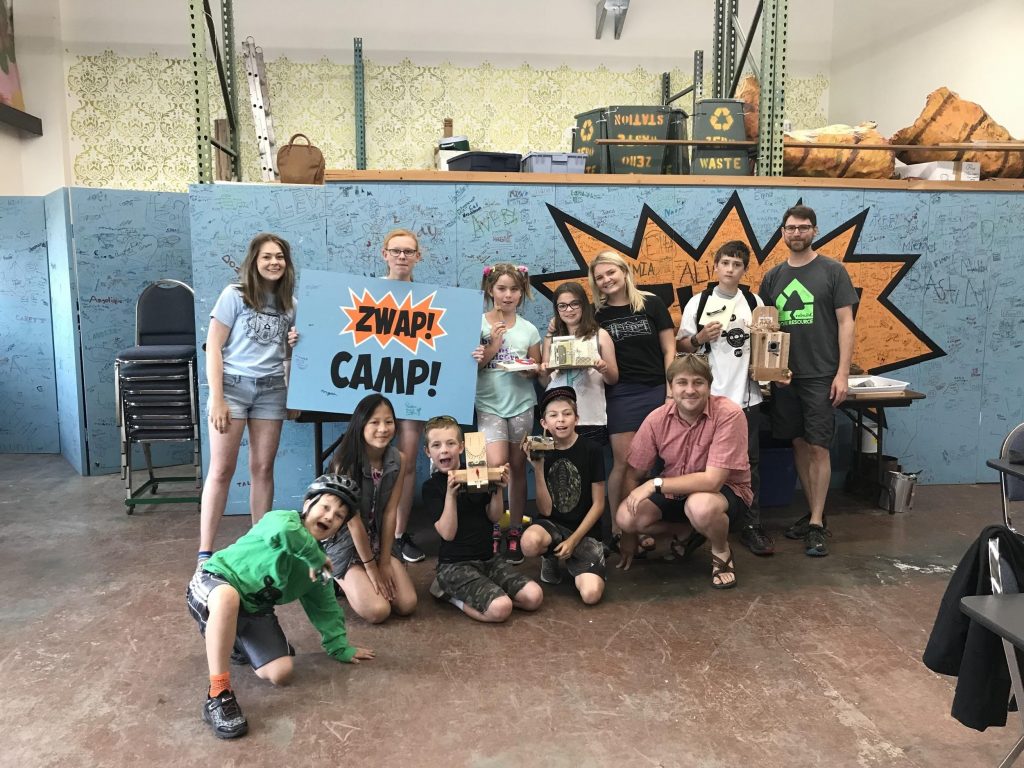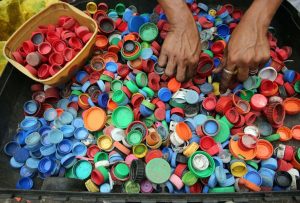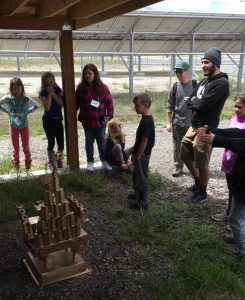By Noelle Herring
This summer I helped lead a week long camp for kids ages 8 through 16. In collaboration with the ZACC, Home ReSource created ZWAP! Camp! The goal of this camp was to inform kids about Zero Waste practices through fun hands on learning activities, like building creations using reused materials found in Home ReSource.
(ZWAP! Stands for Zero Waste Ambassadors Program. A big part of my service was spent teaching ZWAP! to 5th graders, which you can read more about in my previous blog posts.)
During the camp, we also took the kids on field trips to the Missoula Landfill, Soil Cycle, Free Cycles, and the Missoula Food Bank. Through these trips they learned about where our waste goes (landfill), local alternative ways to deal with our food waste (Soil Cycle and Missoula Food Bank), and another Missoula non-profit dedicated to building community while reducing waste (Free Cycles).
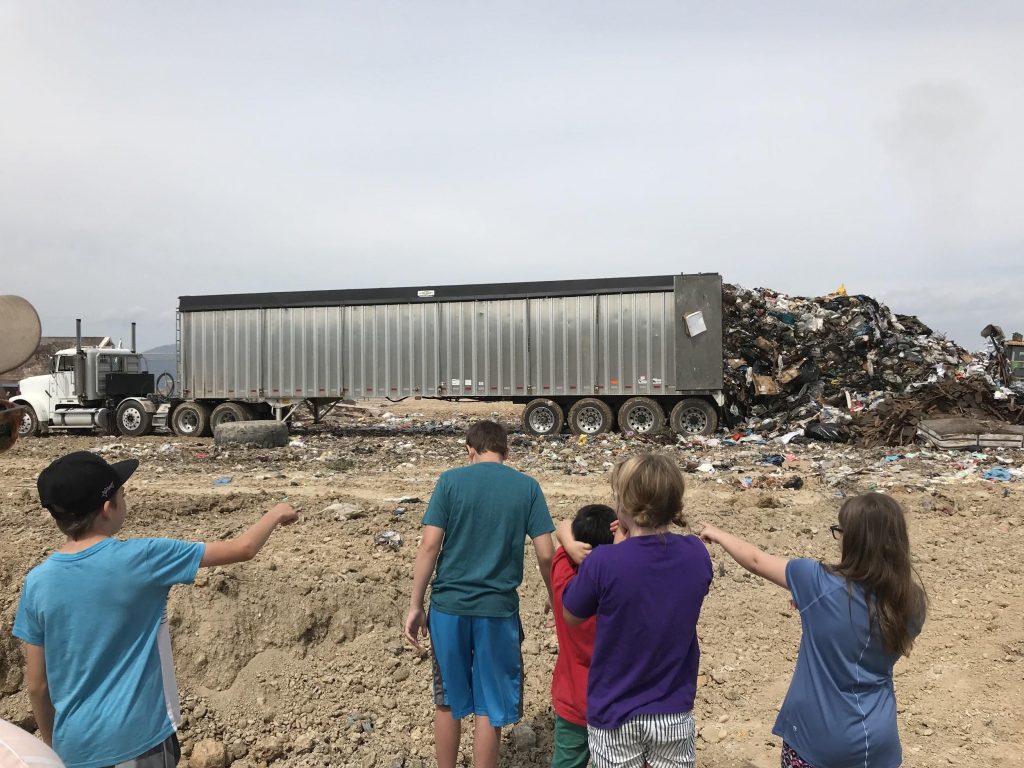
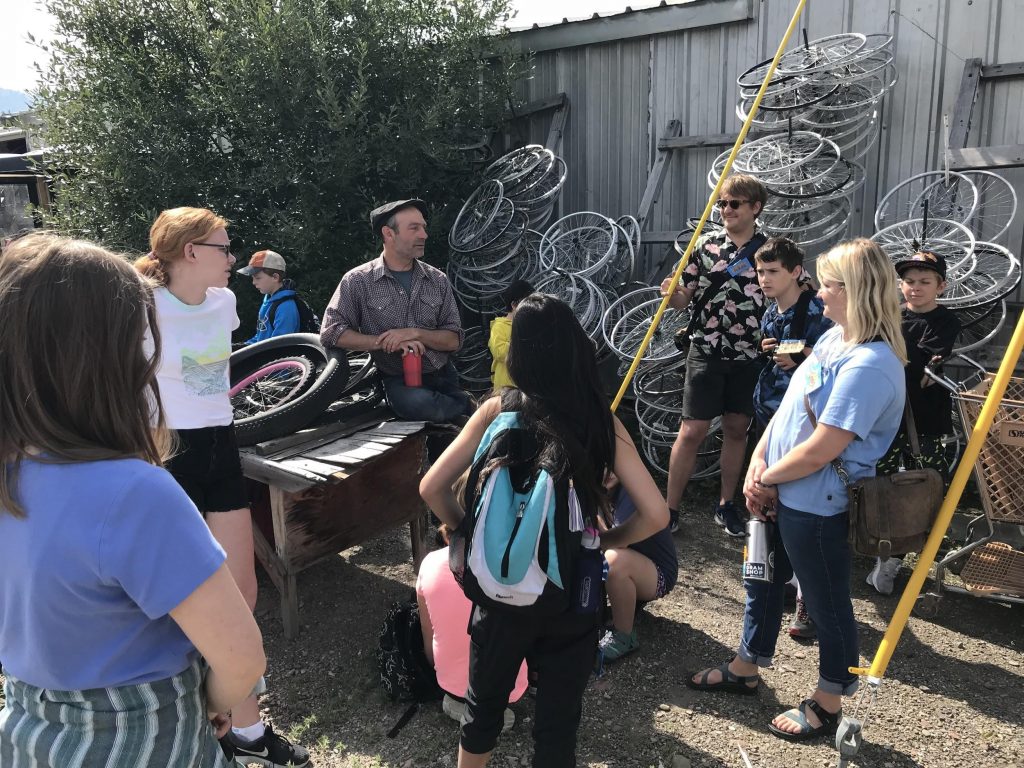
I myself learned a great deal on food waste and food insecurity during these field trips. While on the tour of Soil Cycle, a bike powered compost collection non-profit here in Missoula, we were told a few facts that have stuck with me. Caitlyn, the founder, was explaining the difference between throwing food scraps away in our garbage (which ends up at the landfill) versus composting them. She asked the campers how long did they think it would take for a single head of lettuce to decompose when tied up in a plastic trash bag and buried in a landfill. Starting at just a few days, the campers kept guessing until they landed close to the correct answer: about 25 years. Then Caitlyn asked them how long it would take for a single head of lettuce to decompose when properly composted. This time the correct answer was somewhere between 5 to 15 days. That difference in time is astounding to me! It’s so silly that we are bagging up all of our organic waste and disposing of it in such a way that it is producing harmful gases instead of nutrient rich soil. We could greatly reduce the size and environmental impact of our landfills if we simply composted all food and organic materials. I realize not everyone has access to compost collection services or the ability to compost at home. Hopefully as the popularity of composting increases, so will the accessibility.
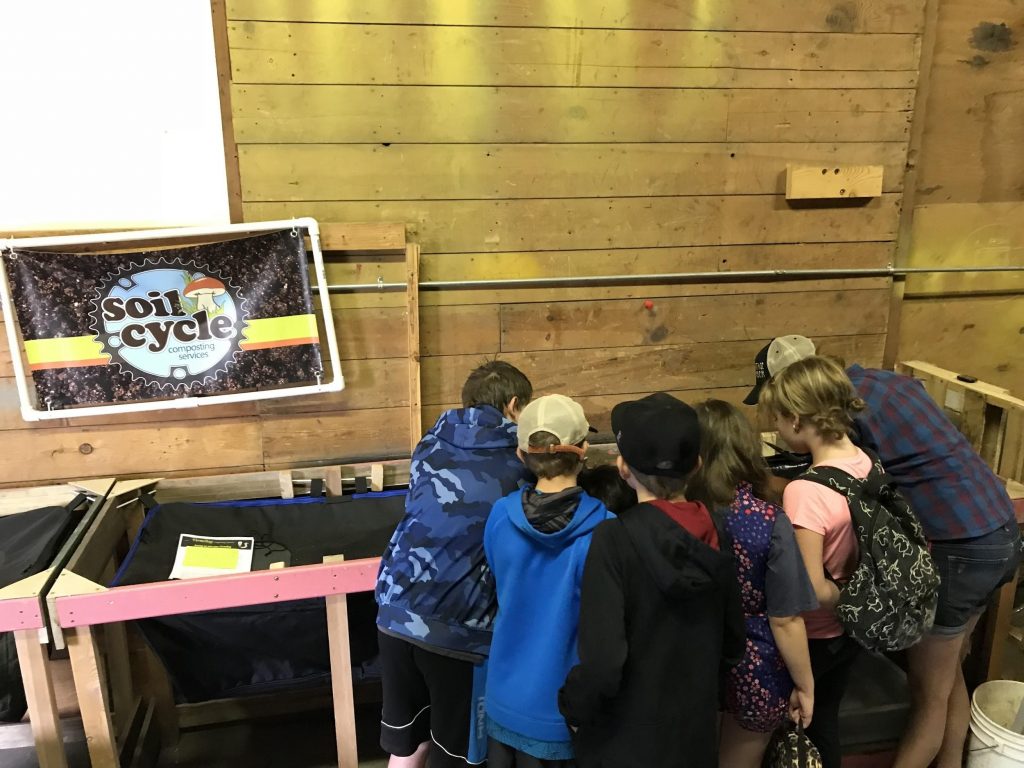
While composting is great for disposing of scraps and other organic debris, there are arguably better solutions to dealing with uneaten and unwanted food. About ⅓ of the food we produce for human consumption in the US is wasted. But so many people are facing food insecurity on a daily basis. This is where places like the Missoula Food Bank come into play. The food bank provides an entirely free grocery store that anyone, yes anyone, can shop at. The one here in Missoula served around 26,000 unique individuals this past year. But how and where do they get all of this free food? Well as much as food establishments like grocery stores and restaurants try to provide the right amount of food that people will purchase, there isn’t an exact science. Extra food that these places cannot sell past a certain date and “ugly” produce that no one wants to buy are often still perfectly edible. So instead of just throwing these excess food items away, the food bank will collect them and provide them for free to the public. Not only does this greatly reduce food waste, but it feeds the community in need!
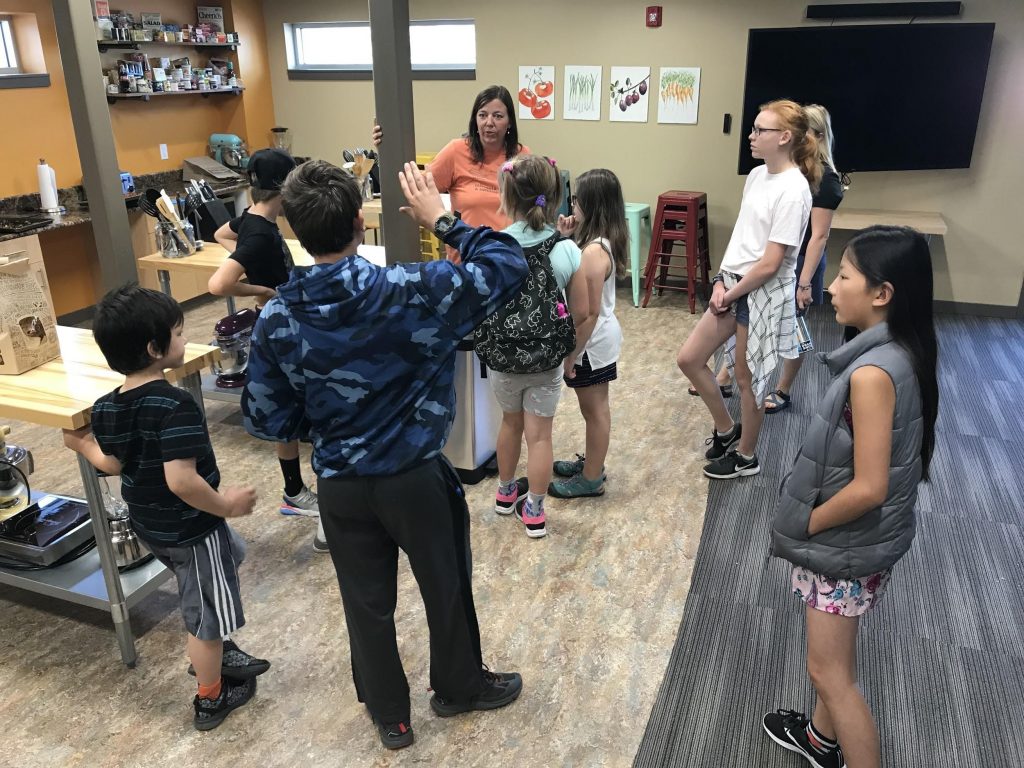
As a PSA to my fellow Energy Corps and AmeriCorps members, take advantage of all of the resources available to you in your community! Not until this month did I know that the food bank was an option for me. Not every food bank is alike, so you will have to check the guidelines of the one nearest you. There is no income limit for the Missoula Food Bank, just a twice monthly shopping limit. Living off of an AmeriCorps stipend can be challenging, so seek out all the extra help that you need!

